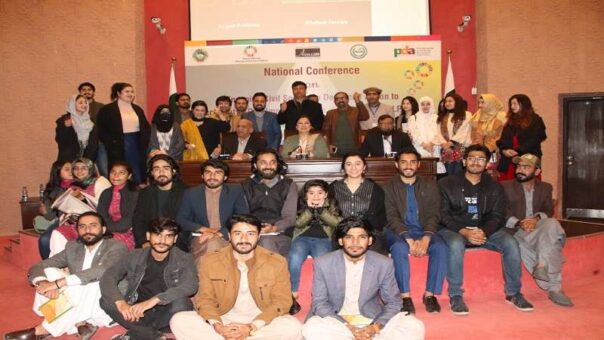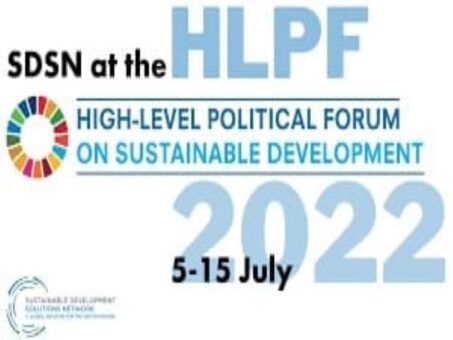KARACHI: Awaz CDS has always played effective role to achieve Sustainable Development Goals (SDGs) and accelerating role of civil society in process.
Post presentation of voluntary National Review Report (VNR) at High Level Political Forum 2022 by United Nations, Awaz CDS came together with Pakistan Development Alliance to strengthen development processes at national level.
A conference was held in this regard on Engaging Civil Society in Decade of Action to Accelerate SDGs Implementation -Lessons from HLPF2022 and Way Forward. The event is jointly organized by National Parliamentary Task Force on SDGs Planning Commission of Pakistan, Awaz CDS-Pakistan, and Pakistan Development Alliance.
READ MORE: FBR chairman issues directives to safeguard revenue, achieve targets
Awaz CDS-Pakistan and Pakistan Development Alliance led the civil society engagement processes at the national level and produced spotlight report as well as voluntary local review report in 2022 which were also launched during the conference.
Ali Kemal, Chief SDGs Planning Commission of Pakistan, said that VNR Report compilation is a massive project and civil society played a very important role in data collection and its successful completion.
VNRs provide the opportunity for countries to share their individual experiences, including successes, challenges and lessons learned, with a view to accelerating SDG implementation. He stressed on the importance of effective roles civil society plays in achieving SDGs and benefiting from the learnings of such review reports.
Romina Khurshid Alam, Convener Parliamentary Task Force on SDGs welcomed the audience and said that since the adoption of SDGs as national development goals by Parliament of Pakistan in March 2016, the government has achieved many instructional and strategic millstones to implement SDGs. Pakistan has successfully presented two voluntary national review (VNR) reports at the High Level Political Forum (HLPF) at UNHQ in July 2109 and 2022.
Mohammad Zia-ur-Rehman, Chief Executive Awaz CDS-Pakistan & National Chair Pakistan Development Alliance said that civil society has done a lot of work in the implementation of SDGs and has aided in the improvement of overall situation in Pakistan. He stressed the need for greater and more accurate data collection.
He further highlighted the need of inclusion and participation of civil society representatives at the policy level as well as VNR report making process for depiction of real on ground situation. Founder of SDGs Academy Ammar Jaffery stressed to engage youth in the process.
Munazza Gillani Country Director Sightsavers emphasized on the meaningful engagement of persons with disabilities to ensure no one is left behind to benefit from SDGs.
Representatives of VSO Hashim Bilal shared the constructive role of volunteers towards the achievement of SDGs. Mukhtar Ahmed Ali Executive Director CPDI called for the political will of the duty bearers and sensitisation of right holders in the processes.
Javed Malick Country Director Malala Fund highlighted the need of quality education and gender equality in Pakistan as main pillars to achieve SDGs. Country Director Hashoo Foundation Ayesha Khan called for more spaces for civil society so as they can facilitate governments better to fulfil international commitments including SDGs.
Nadeem Ahmed Social Policy Advisor Federal SDGs Unit Planning Commission of Pakistan appreciated the role of civil society in holding government accountable and shared that government has taken many policy and structural steps to achieve SDGs in Pakistan. He also shared that a subcommittee of National Economic Council -NEC, the apex decision making body in the country has been established to monitor the progress on the implementation of SDGs.



